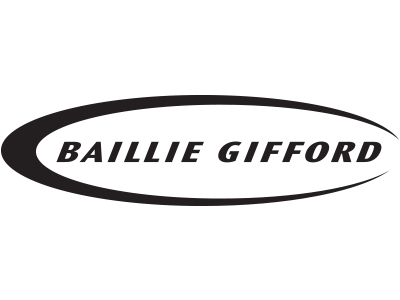In April 2018, HW Fisher was barrelling towards a succession problem. The long-established firm had 19 equity partners, but a number of those were ageing and looking to retire, and that obviously comes with costs.
The issue finally came to a head when seven of the 19 partners decided the time had come to take the business forward in a different direction. “Something needed to be done to move the business to the next generation,” reflected Andrew Rich, the managing partner at HW Fisher. So the seven equity partners came together and started the proceedings for a management buyout.
It ended up being an exhaustive process, stretched over four to five years; older partners left the firm over that time, while a couple stayed on. But this became a watershed moment for HW Fisher.
Following the management buyout the firm became an LLP. Then as the equity partner pool reduced, younger employees were promoted, from manager to director and then partner. The firm also brought in external people to be partners and bolster the team, as they looked towards expanding their services and strengthening the sectors they already had a foothold in.
After managing the exodus of a number of older partners and bringing in new people, HW Fisher had set its sights on the next stage of growth. However, Rome wasn’t built in a day – the independent firm still had talent and monetary barriers ahead.
All the while, the increasing momentum of private equity in the accountancy profession was always in the back of their minds.
* * *
In October 2024, HW Fisher announced that it had become part of the Sumer group. The deal was struck a year after HW Fisher celebrated its 90th anniversary.
The acquisitive consolidator only burst onto the scene in early 2023 but it has already created a nationwide network of long-established accountancy firms, including Carpenter Box, Cowgills, Monahans, Scrutton Bland and Jerroms.
Backed by funding from Penta Capital and BlackRock, the consolidator has over 40 offices and a turnover of over £100m. While Sumer has fast become a key player, they’re not the only major investor making waves. Hardly a week goes by without an announcement landing in our inbox of a private equity-backed acquisition.
Sumer isn’t the only major investor making waves. Cooper Parry and Dains are just two recent examples of firms that have secured private equity investment.
But not all private equity deals are equal. All firms may come to the table with ambitions of growth, but not have their houses in order before they arrive at the deal.
 “The difference with us is that we did this deal from a position of strength. We didn’t have to do this straightaway. But we had already done the heavy lifting with our management buyout and with our succession,’ Rich (pictured left) told AccountingWEB.
“The difference with us is that we did this deal from a position of strength. We didn’t have to do this straightaway. But we had already done the heavy lifting with our management buyout and with our succession,’ Rich (pictured left) told AccountingWEB.
“I think there are some firms that are going with other private equity houses that are doing it, in my opinion, from a position of relative weakness, because they’ve got a lot of partners who are not in a harmonious partnership, whereas we had seven of us all very much focused in one direction.”
Beyond avoiding succession challenges, and the potential challenges that brings of starting an investment on the wrong foot, HW Fisher also got their house in order ahead of the deal by strengthening their back office.
“I deliberately made sure I recruited very good people in finance and compliance a few years ago. So for a firm of our size, we’ve got very good financial reporting systems. Our back office is excellent, as is compliance,” said Rich.
We did this deal from a position of strength. We didn’t have to do this straightaway. But we had already done the heavy lifting with our management buyout and with our succession.”
“So when you’re doing a deal, it means that you’re fit and ready to provide the information to the people conducting the due diligence. I think with other firms the whole process might take longer because they’re scrambling around trying to find information or providing information.”
The tentacles of private equity investment have tightened their grip around the accountancy sector, as will be explored in a number of sessions at the Festival of Accounting & Bookkeeping on 12–13 March in Birmingham. Book your FREE tickets now.
Investment solves nagging challenges
The influx of investment into the profession has provided a solution to some of the nagging challenges facing mid-tier and large firms looking to scale while staying competitive against Big Four dominance.
Before HW Fisher agreed to the Sumer deal, the partners were ready to proceed with their original strategic plan, but they were aware that their ambitions would be an uphill struggle without the investment.
“After having bought out the old equity partners, we came up against a monetary barrier,” said Rich. “Partners don’t mind investing in technology but they don’t want to dig too deep [in their pockets].”
Additionally, the firm still faced the usual talent problems and difficulties in increasing the number of younger partners who held equity ownership. “We had made positive moves with our cultures and our values and it was becoming a nice place to work with a good hybrid working policy, but like other medium-sized firms, the challenges of recruitment and retention remained a factor.”
The firm started to speak with the various different private equity protagonists out there. But they pretty much ruled them all out. “They weren’t the sort of people we wanted to work with as an independent firm,” said Rich.
That was until they discovered the Sumer model. The consolidator takes a majority stake in the acquired business, but unlike others operating in this space, they retain the firm’s management team, individual firm branding and colleagues.
The acquired firms receive investment from the consolidator to assist them in managing regulation, disruptive technologies, and both talent acquisition and retention. Sumer has established regional hubs around the acquired firms.
“We liked the idea of being a big firm in their hubs,” said Rich. He said they liked the people behind the company and more importantly, they could retain their independence as HW Fisher and still be an independent brand.
By having the firms in hubs means the group can ensure they’re joined up. From an audit perspective, for example, they would make sure everyone’s using the same software and they’ll have a national audit approach, which encourages more collaboration. “There’s no point in everyone being on different audit technology, or using different packages with the same tech,” said Rich.
Collaboration is key here. “I think it is going to be of benefit to all the hubs, not just ours, that we’re all connected. They’re looking at it from an internal point of view, improving collaboration through using tech-enabled solutions.”
HW Fisher also saw the benefit of being part of a large group and how this could broaden their client services, expand their client base and integrate with the latest technology. The firm came to the table with strengths in tax, audit and forensic accounting, but joining forces with Sumer meant they could offer other services like corporate finance, which they didn’t offer before.
Bringing on the next generation
The other problem the deal solved was the conundrum of getting young people into equity.
Recruitment and retention has become a perennial issue in accountancy. According to data from the 2024 Accounting Excellence Awards, over 60% of mid-tier finalists and 40% of large firms said recruitment and retention was their biggest challenge.
These firms responded to the challenge by investing in their learning and development programmes and most importantly, creating more pathways for employees to move up the career ladder.
For HW Fisher, the deal with Sumer secured a route for younger people who aspired to grow in the firm but couldn’t have afforded equity. But now, the firm can offer shares in the business, so as HW Fisher and Sumer grow, the value of the shares also increases. This has opened the doors to fresh talent.
We can now offer the carrot of growth shares and we’re becoming an attractive place to work under the model.”
“We can now offer the carrot of growth shares and we’re becoming an attractive place to work under the model – not all private equity models offer that benefit,” explained Rich.
Private equity partnership model
The rise of private equity investment has also influenced the evolving shape of the traditional partnership model. With an increasing number of large firms selling off huge stakes to private equity houses, the partner role is not the same as it once was.
The partnership model has become less attractive – who would want the risk attached to the role and also to pick up the costs, anyway?
“When I bought my equity way back in 2004, I had a young family. It was a different climate. You went to the bank, you borrowed the money and you worked your way up and your profits increased. But I think people’s attitude to risk is now different,” said Rich.
The situation with HW Fisher is the cost was prohibitively expensive for anyone looking to buy in. “If we’d spent all this money buying 12 partners out, reducing from 19 to seven, then it was going to be too expensive for people to buy in. So we were conscious of that.”
Not every partnership is like that, but there are other hurdles for the younger generation to make partner. “Banks are becoming more risk averse in lending to partnerships, and I think this generation of people don’t want to take that level of risk,” said Rich.
That’s why Rich supported the Sumer model, which provides the chance to have a stake in the future growth of the business without having to put any money up. At the same time, they still earn the same profits and discretionary bonuses, so nothing’s really changed for them.
The partnership model, while it’s not dead, it’s certainly being challenged.”
“I think the partnership model, while it’s not dead, it’s certainly being challenged by this private equity model,” said Rich. “For young people, I think it’s more attractive and for the people who own the equity it’s a chance for them to divest a little bit and take some money off the table.
“But no private equity house is going to give all the money upfront. So we’ve got to, quite rightly, stay in the business and grow it to the next stage. So we’re all in it together. We’ve got a stake too. I think it just means you can widen the partnership.”
It’s becoming increasingly difficult to become an equity partner. Rich pointed to reports from the Big Four, where he said fixed-profit share partners or directors are finding it difficult to get to the next stage. “Big firms are keeping equity tight. Good people at the Big Four can’t make it to the next level, so they’re looking elsewhere,” he said.
Rich believes their model has made the firm more attractive. “Partnerships can still exist, but ultimately, I think unless you’re a rainmaker, you’re going to find it hard to get into those partnerships, because the equity holders are going to keep it quite tight.”
This is why private equity has become such an attractive solution for many firms facing succession issues with retiring partners who expect substantial payouts.
“Partnerships aren’t necessarily harmonious. They’re often working from multiple offices. And it’s very difficult to move to the next level without big investment or having to buy someone out. I’ve got a lot of good contacts in the US, and many of the independent firms don’t want to take private equity, but they’ve got real issues in paying people out,” said Rich.
“There’s a whole suite of partners at these firms that are ready to retire, but they want astronomical sums. So private equity offers that way of them getting some payment for their equity, however big or small, and then allowing the next generation to come in and have a future stake in the business. That’s why it’s such an attractive option for different businesses in just dealing with succession.”
What’s next?
HW Fisher has only been part of the Sumer fold for a handful of months but the early signs are positive. For now, the main message for everybody is growth. With the private equity backing, HW Fisher has the funds to accelerate growth through new acquisitions.
“It’s all about growth and getting more opportunities to do better-quality business,” said Rich. “Our business is going to increase exponentially because we’ve got good advisers. We’re encouraged to go and buy other firms. We’re encouraged to recruit more people and they’re going to help us with that pipeline.
“They have come up with a unique model that’s inclusive and is beneficial to all the partners. There’s a good feeling in the firm now that this has been a very positive thing for the firm in terms of our future growth and hiring people.”
By securing investment while preserving independence, HW Fisher’s partnership with Sumer demonstrates how private equity can fuel sustainable growth, ease succession challenges and create new opportunities for the next generation of accountants.
Mergers and acquisitions can open new doors for growth, but successfully integrating two firms is often fraught with challenges. The Festival of Accounting & Bookkeeping features a session on mastering post-merger success alongside a whole programme of progressive content. Book your free ticket for the two-day event at the NEC, Birmingham on 12–13 March.





